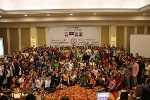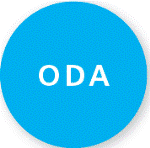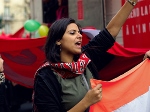Social Watch news
Published on Tue, 2015-02-24 10:10
In a report submitted to the UN General Assembly (“the report”), the UN Special Rapporteur on the Right to Health, Mr. Anand Grover (“the Rapporteur”) added his voice to the rising chorus of dissatisfaction with the role and performance of international investment agreements.
In Mr. Grover’s case the criticism was, as pertinent to his mandate, centered around the negative impacts of such treaties on the right to health. But his comments and criticism resonate strongly with the concerns that have led more than forty countries to be at the moment reviewing their processes for rule-making on investment or fully withdrawing from previously signed investment treaties.
|
Published on Tue, 2015-02-24 09:59
The concept of Total Official Support for Sustainable Development (TOSD) is being promoted as an alternative to the current Official Development Assistance (ODA). Is this going to put more money on the table or just a “creative accounting” way to meet the commitments made by developed countries without paying?
|
Published on Fri, 2015-02-20 15:48
On February 18th a mid-day side event: “Robust and Measurable SDGs: Launch of report on scientific review of targets for the Sustainable Development Goals-the science perspective” was organized by the International Council for Science (ICSU) in partnership with the International Social Science Council (ISSC). The authors included forty-one people from the natural and social sciences in 21 countries and the event hosted a platform of 5 women contributors from different parts of the world presenting their particular angles on the document.
The 17 Sustainable Development Goals (SDGs) and their 169 targets were reviewed and the report focuses on a variety of issues ranging from the problem with targets, their double edged nature, the integration of goals and implementability as well as measurability and their links to appropriate country situations. It found that 29% of targets were well defined, that 54% needed more work, while 17% were weak or non essential.
|
Published on Fri, 2015-02-20 08:36
Jean Letitia Saldanha (CIDSE), participated in the a side-event by the Permanent Mission of Brazil to the UN, CIDSE and Social Watch on Thursday, January 29, 2015 in the UN Conference Building, New York. Dealing with responsibilities in a financing sustainable development context, this event generated discussion on conceptual challenges such as an evenhanded approach to the three pillars of sustainable development, adapting a framework like the Financing for Development process to the universal agenda of the Sustainable Development Goals without denaturalizing and decontextualizing it and how to incorporate important principles agreed at the UN Conference on Sustainable Development.
|
Published on Thu, 2015-02-19 14:19
Feminist and women’s organizations from the global south have conceived the United Nations as a critical space for recognizing and advancing progressive policies towards the realization of women’s human rights and alternative development frameworks.
Twenty years ago, the Beijing Declaration and Platform for Action recognized the impact of globalization trends, structural adjustment programs and privatization in women’s human rights and proposed measures that government should implement in order to revert these negative impacts. Among the recommendations, there was a strong recognition of the need to reform macroeconomic policies and development strategies to address gender inequality. Governments agreed to ensure that all corporations, the private sector, specially transnational corporations, “comply with national laws and codes, social security regulations, applicable international agreements, instruments and conventions, including those related to the environment, and other relevant laws, (para 165, l)”. Besides, new ways of generating additional public financial resources to tackle inequalities issues were considered, for instance, through the reduction “of excessive military expenditures” (para 143, b). Even if the Beijing Platform for Action (BPfA) was approved by governments in the context of the Washington Consensus, it has been a tool at the national and regional levels to promote policy change towards gender justice.
|
Published on Thu, 2015-02-19 14:14
The social contracts of the 20th century face myriad challenges today: economic, financial and ecological crises; growing uncertainty; backlash against human rights and social justice. Civil society, grassroots organizations and social movements are calling for new social contracts, challenging the underlying power relationships and the intersections between them.
At this panel discussion, key speaker Gita Sen, Valeria Esquivel from UNRISD and Roberto Bissio, Coordinator of Social Watch talk about the role of feminist movements in the remaking of social contracts. They will help untangle some of the complex power relationships that need to be addressed, if new social contracts are to fulfil the promise of human rights and gender justice.
|
Published on Fri, 2015-02-13 07:55

Photo: SILAKA, Cambodia.
|
Two hundred and fifty representatives from women leaders, young women activists, LGBT, and Civil Society Organizations, attended the national workshop on “Promoting Participation of Women in Politics” jointly organized by Committee to Promote Women in Politics and SILAKA, with a strong support from regional and international society organizations in country in order to promote women in politics. The meeting was held in Phnom Penh last January 28 2015.
In her opening speech, Ms. Thida Khus, the chair of Committee to Promote Women in Politics and Executive Director of SILAKA said that “ Women Participation is very important to work effectively and promoting of increase the number of women participation in decision making in politics”.
|
Published on Fri, 2015-02-13 06:35
Roberto Bissio, Coordinator of Social Watch, participated in the a side-event by the Permanent Mission of Brazil to the UN, CIDSE and Social Watch on Thursday, January 29, 2015 in the UN Conference Building, New York. Dealing with responsibilities in a financing sustainable development context, this event generated discussion on conceptual challenges such as an evenhanded approach to the three pillars of sustainable development, adapting a framework like the Financing for Development process to the universal agenda of the Sustainable Development Goals without denaturalizing and decontextualizing it and how to incorporate important principles agreed at the UN Conference on Sustainable Development.
Bissio said that developed countries that have a major share in the historic responsibility of filling the atmosphere with human-generated emissions of carbon dioxide since the start of the industrial revolution, two centuries ago, are expected by the climate convention of the UN to have a greater responsibility.
|
Published on Fri, 2015-02-13 05:45
In a new document entitled “Key messages on Human Rights and Financing for Development” the Office of the High Commissioner for Human Rights (OHCHR) teased out several implications of the human rights legal framework for the Financing for Development Conference.
Negotiations towards the adoption of an Outcome Document for the Third International Conference on Financing for Development (FfD), to be held on 13 to 16 July in Addis Ababa, Ethiopia, are already underway. The Conference is mandated to assess progress, made in the implementation of the Monterrey Consensus and the Doha Declaration (on Financing for Development), . . . identify obstacles and constraints encountered in the achievement of the goals and objectives agreed therein, as well as actions and initiatives to overcome these constraints, and address new and emerging issues, including in the context of the recent multilateral efforts to promote international development cooperation…”
|
Published on Wed, 2015-02-11 07:46
Manuel F Montes, Senior Advisor on Finance and Development of The South Centre, participated in the a side-event co-organized by the Permanent Mission of Brazil to the UN, CIDSE and Social Watch on Thursday, January 29, 2015 in the UN Conference Building, New York. Dealing with responsibilities in a financing sustainable development context, this event generated discussion on conceptual challenges such as an evenhanded approach to the three pillars of sustainable development, adapting a framework like the Financing for Development process to the universal agenda of the Sustainable Development Goals without denaturalizing and decontextualizing it and how to incorporate important principles agreed at the UN Conference on Sustainable Development.
Montes said that even when he does not know how long it took diplomats in 1992 to arrive at the CBDR formulation it is an accurate shorthand characterization of the balance of responsibilities in the climate change framework. It is not true that developing countries do not have obligations in the climate change treaty. Developing countries have obligations under the convention but “[T] The extent to which developing country Parties will effectively implement their commitments under the Convention will depend on the effective implementation by developed country Parties of their commitments under the Convention related to financial resources and transfer of technology and will take fully into account that economic and social development and poverty eradication are the first and overriding priorities of the developing country Parties” (United Nations 1992, paragraph 4.7).
|
SUSCRIBE TO OUR NEWSLETTER
Submit

|









